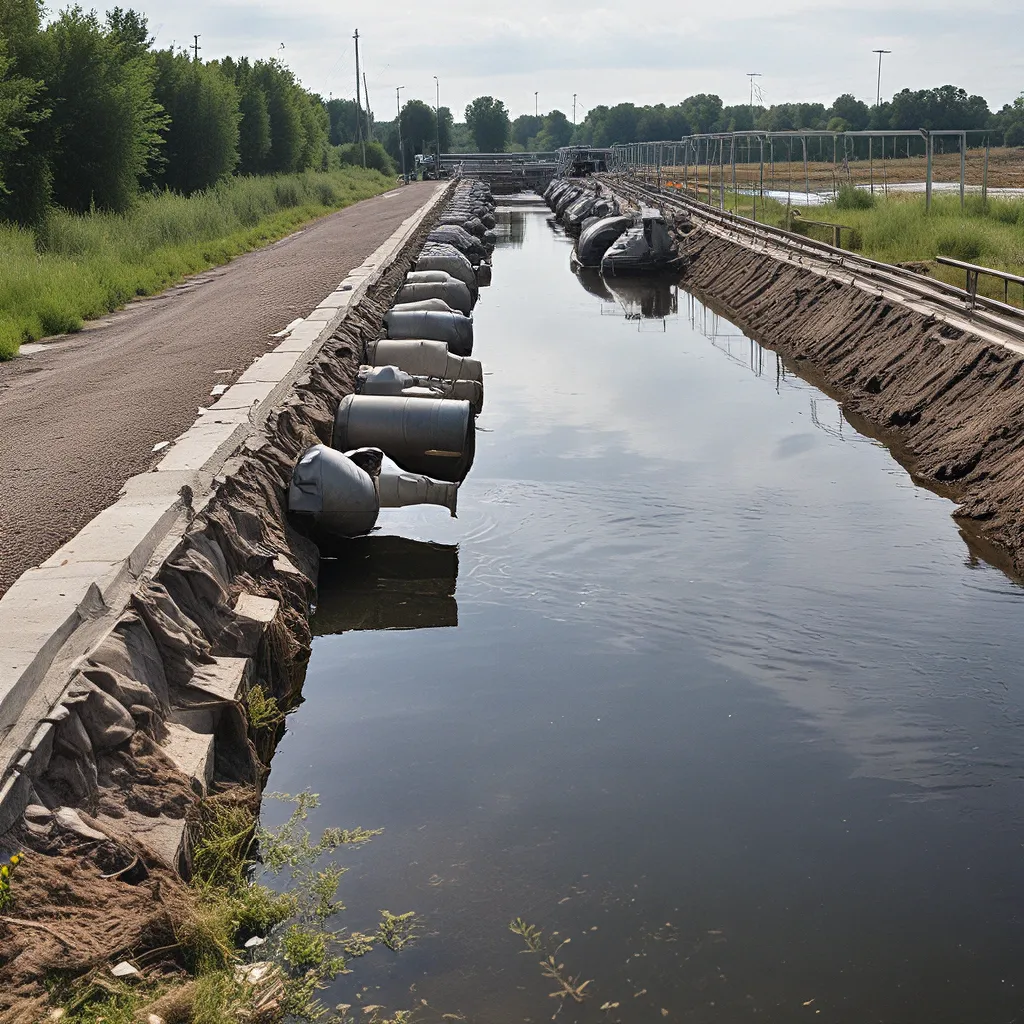
As the world grapples with the rising tide of environmental challenges, one issue that has been gaining significant attention is the presence of emerging contaminants in our water systems. These are substances that were once largely overlooked but are now recognized as posing potential risks to both human health and aquatic ecosystems. And when it comes to tackling this problem, the role of wastewater treatment services cannot be overstated.
Understanding Emerging Contaminants
Emerging contaminants, or contaminants of emerging concern (CECs), are a diverse group of synthetic and naturally occurring chemicals that have recently been detected in water bodies and drinking water sources. These include pharmaceuticals, personal care products, pesticides, and even industrial chemicals. What sets them apart is that they were not previously monitored or regulated, and their potential impacts on the environment and human health are still being studied.
One particularly concerning group of CECs are the endocrine-disrupting chemicals (EDCs). These are compounds that can interfere with the normal functioning of hormones in both humans and wildlife. This can lead to a range of effects, from reproductive issues to developmental problems and even cancer.
The Wastewater Challenge
The presence of these emerging contaminants in our water systems is a complex challenge that requires a multifaceted approach. And at the heart of this challenge lies the wastewater treatment process.
Wastewater treatment plants are designed to remove a wide range of pollutants, from organic matter to nutrients and pathogens. However, many emerging contaminants are resistant to conventional treatment methods, slipping through the cracks and ending up in our waterways.
This is where the expertise of wastewater treatment services becomes crucial. These specialized providers play a vital role in addressing the emerging contaminant threat by employing advanced technologies and strategies to enhance the removal of these stubborn pollutants.
Advancing Wastewater Treatment Technologies
One of the key ways wastewater treatment services are tackling the emerging contaminant issue is through the adoption of innovative treatment technologies. These include:
Membrane filtration: Advanced membrane systems, such as reverse osmosis and nanofiltration, can effectively remove a wide range of CECs, including pharmaceuticals and personal care products.
Advanced oxidation processes: Techniques like ozonation and UV/peroxide treatment can break down and decompose many emerging contaminants through powerful oxidation reactions.
Adsorption: The use of activated carbon or other adsorbent materials can capture and remove a variety of CECs from the wastewater stream.
Bioremediation: Harnessing the power of specialized microorganisms, bioremediation technologies can degrade and transform certain emerging contaminants into less harmful compounds.
These cutting-edge approaches, combined with continuous research and development, are enabling wastewater treatment services to stay ahead of the emerging contaminant challenge and protect our precious water resources.
Regulatory Efforts and Collaboration
Addressing the emerging contaminant issue also requires a collaborative effort between government agencies, research institutions, and industry stakeholders. The U.S. Environmental Protection Agency (EPA), for example, has been actively working to develop updated guidelines and water quality criteria specifically tailored to the unique characteristics of CECs.
In 2021, the Biden-Harris Administration launched a comprehensive plan to combat the per- and polyfluoroalkyl substances (PFAS) crisis, a particularly persistent and problematic class of emerging contaminants. This initiative, which involves multiple federal agencies, aims to prevent PFAS from entering water systems, hold polluters accountable, and address the impacts on affected communities.
The Importance of Proactive Measures
As the scientific understanding of emerging contaminants continues to evolve, it’s clear that a proactive approach is essential. Wastewater treatment services must stay at the forefront of this rapidly changing landscape, constantly adapting their processes and technologies to ensure the safety and sustainability of our water resources.
This proactive mindset extends beyond just the treatment facilities themselves. It also involves public education, stakeholder engagement, and policy development to create a holistic framework for addressing the emerging contaminant challenge.
By working collaboratively with regulatory agencies, researchers, and the public, wastewater treatment services can play a crucial role in safeguarding our water supplies and protecting the environment from the potential dangers posed by these emerging pollutants.
Embracing the Future of Wastewater Treatment
As we look to the future, the role of wastewater treatment services in tackling emerging contaminants will only become more crucial. With the ongoing development of new treatment technologies, the refinement of existing methods, and the advancement of scientific understanding, these specialized providers will be at the forefront of the fight to ensure the safety and sustainability of our water resources.
At Alpha Wastewater, we are committed to staying at the cutting edge of this evolving landscape. Our team of experts is dedicated to exploring the latest innovations, collaborating with industry partners, and implementing the most effective strategies to address the threat of emerging contaminants.
By working closely with our clients and the broader community, we strive to be proactive and responsive to the ever-changing challenges posed by these emerging pollutants. It’s a complex and rapidly evolving field, but one that we are passionate about tackling head-on, for the sake of our shared environment and the health of generations to come.
So, let’s continue to push the boundaries of wastewater treatment, explore new frontiers, and work together to ensure that our water systems remain clean, safe, and resilient in the face of emerging contaminants.